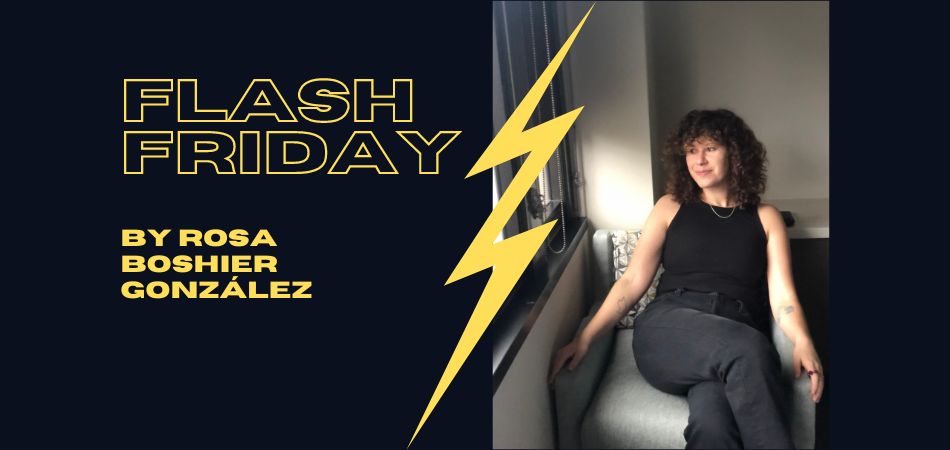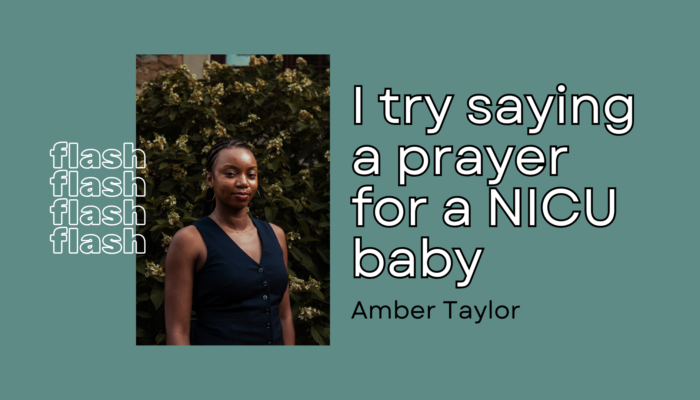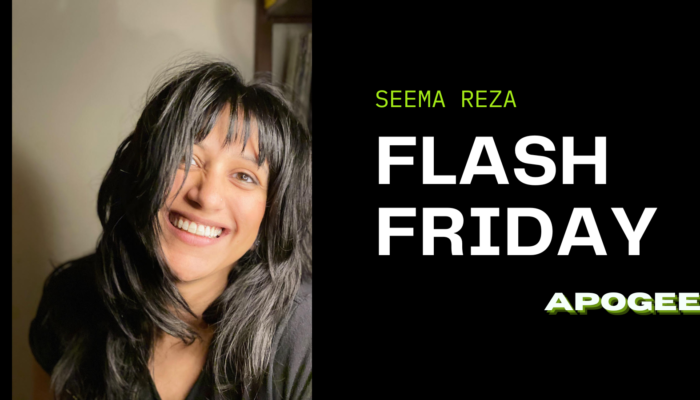102 degrees in Cali. The doctor shakes sand and sweat from his hands before retrieving you. It’s the 1940s and bambuco serenades your arrival, minor chords punctured with yearning, just like you. A mother who will be dead by your sixth birthday cradles you into the floral milk of her chest. Well into adulthood, you’ll wake up in the middle of the night reaching for her, ashamed as you pull the white sheets tight around yourself, wondering why. You’re a thunderous child, always grasping at things with sticky hands. Europeans bomb each other six thousand miles away. You’ll grow up fast—faster than your fragile father can handle. He’ll relinquish you to the world by the time you’re ready for university. All you’ll remember of your childhood is papaya juice and Juanito, the two of you darting through gyrating knees in the plaza. Your father catching your wrist, warning you about your marriage prospects if you don’t stay out of the sun.
Freshman year in Bogotá. You start wearing a scarf and shave off your eyebrows. In an architecture seminar, you trace the fifty-two comb tracks in a boy’s pompadour for three months before you figure out how to dress for him to notice you. After a party, he unwinds your scarf to reveal the gleaming, oiled flesh underneath. Your classmates will speculate if the baby came before or after the wedding. Right and left wing politicians shake hands on how to discard of their poor, but your concerns lie at church: a shared smile, his hand flicking the small of her back. It happens one time, two, then three, before your anger erupts all at once. One palm shielding the jellied fetus inside your stomach, you feel entitled to it, but he kicks the rage out of you almost as soon as you’ve opened your mouth. Decisions: many. You take it out on his silk ties, cutting them to shreds. You drain his shelf of American whiskey.
A year into your marriage, the blood continues pooling underneath your skin. Your second decade arrives months after your firstborn. You look down at the newborn, graze the welts on your stomach with one hand—the braid of his belt visible on your skin—and the wispy curls on your daughter’s head with the other. It will take two more children and seven more years for you to leave him.
Ten days—that’s how long your husband will be gone. On business, he tells you. You’ve stopped caring whether or not this is a lie. You touch the mauve center of a chartreuse bruise and wonder if it will be the last. Three phone calls and four plane tickets, procured through your sister Lupe.
In London, your new apartment has one room, two toasters, and no locks on the doors. Your children’s three little heads knock against one another in a twin bed as they sleep. A tall man with rosacea spits on you at the bus stop. Another grabs his crotch and calls you señorita. You roam every manicured garden in the city—Covent Gardens, Chelsea Gardens, Regent’s Park—grinning. You stoop down to touch soft rose petals, tissue paper lilies, the tubular bodies of fox gloves—and wonder how you’ll remember all of their names.
Twenty-six candles on your cake and three sets of chocolate fingerprints on your skirt’s hem. You look at the rain slathering the King’s Road and feel old. People start to associate your country with blood. Fifteen years later, you’ll prefer this to the jokes about cocaine, the ones that erase the severed heads in the jungle, the boys who carry guns as tall as themselves, Lupe calling you to tell you why your brother is dead.
But you don’t think of that now. It’s only in the ’70s that they start to call it a war. When the newspapers start photographing the blood and publishing the names of the dead. You feel angry at your country’s chaos, and you’re not quite sure why. You wonder if they can smell it on you—the way the bus driver sneers as you board the bus or how the pearl-clad ladies look through you makes you suspect that they can. You resent the proximity to senseless death. That’s when you stop blaming the guerrilleros and start blaming the villagers, start asking out loud to other commuters on the Tube, why they would be so stupid as to venture out for water at night?
You call your friend at the embassy and tell him your theories of flesh, cataloging your countrymen’s mistakes. Instead of agreeing with you, he offers you a job. You spend years working the front desk at the embassy, looking up at that prismic atrium and wondering where everyone you loved went. Your kids are still there. They need you. But the older one suggests otherwise. She tells you you’re a drunk. Not with her words, but with the way she maintains eye contact when she slips your vodka out from under the mattress. How she extracts a stolen chicken from her sweater and feeds your other children with it. You’re not proud of slapping her, but it happens anyway. The violence doesn’t surprise you. It’s calming. What makes you cry, what makes you hide underneath the covers for days, is that she isn’t surprised either.
On weekends, you spend hours at the dinnerware counter at Harrods and stare through the glass at shiny, shiny things. You look down at the china patterns and get lost in their surfaces. Each one tells a different story—ones with ropey flowers, another with happy families enjoying a rural vista. You jot down the ones you like best in a notepad. At night, you lay awake imagining the dinner parties you will have, how the other women in your building will compliment you on your taste.
Your oldest daughter turns eighteen. She becomes beautiful and starts listening to Fleetwood Mac. She climbs in and out of the fire escape. She meets a graying art professor and moves a continent away. You buy a book on Margaret Thatcher.
The second child is a danger, then a disappointment. But the third child is all yours. She agrees to become an accountant, feigns delight when you offer to sew her wedding dress. She’s the only one who produces acceptable offspring. While the third child produces boys, the eldest grandchildren turn out tattooed and middle-sexed. One visits you from America and you notice bruises on her too, but you won’t ask her where she got them. You’ll simply note that their healing turns the same color yours used to.
Your neighborhood starts to change and is featured in magazines. The boarded houses re-open. The sickly young people in black disappear. Secretly, you miss them. Your prized legs begin to mottle and your waist turns inside out. You accept the cellulite but refuse to let your hair gray. You will learn the names of flowers and begin planting them up and down your apartment building’s lawn—hollyhocks, chrysanthemums, Ayrshire roses. You learn to be careful with their roots, dropping them lightly into the earth.
Your neighbor notices the hollyhocks. He puts his prune hand over yours as he describes how they cheered up his late wife, a dying woman who yelled at your grandchildren as they catapulted themselves down the lawn. Watching their arms flail against the chalky sky, you loved the grandchildren then, even the failures. You buy all the china patterns at Harrods that you’ve ever wanted, flashing the store clerk your new wedding ring. You cram them into every corner of your husband’s Chelsea flat. You can finally buy the skin lighteners and hair dyes. But the blond women in your building will never remember your name.




